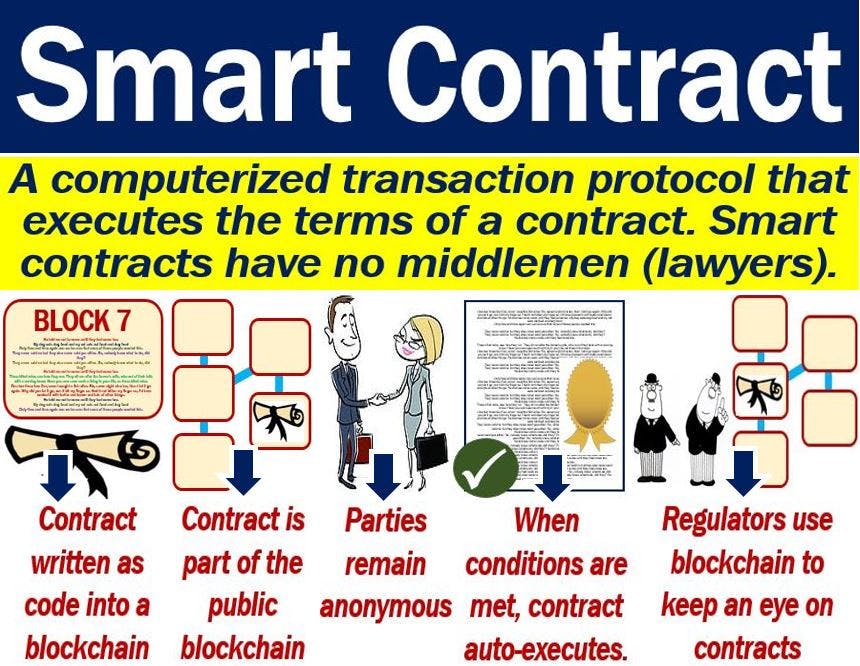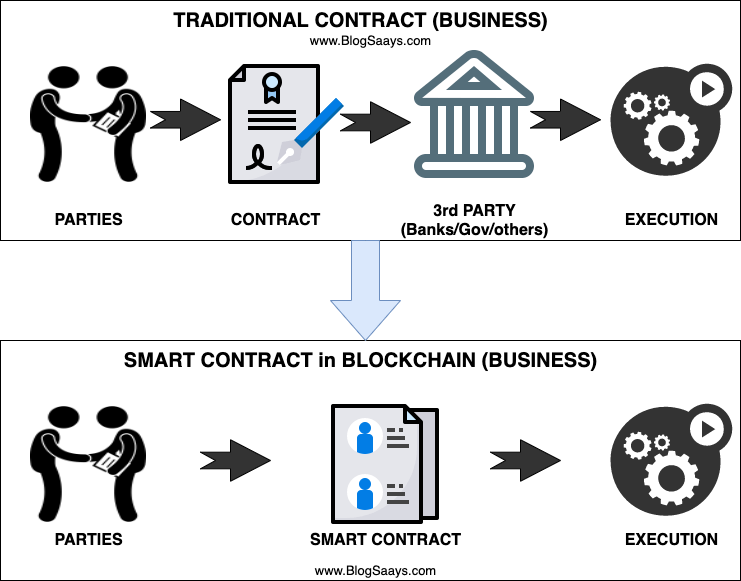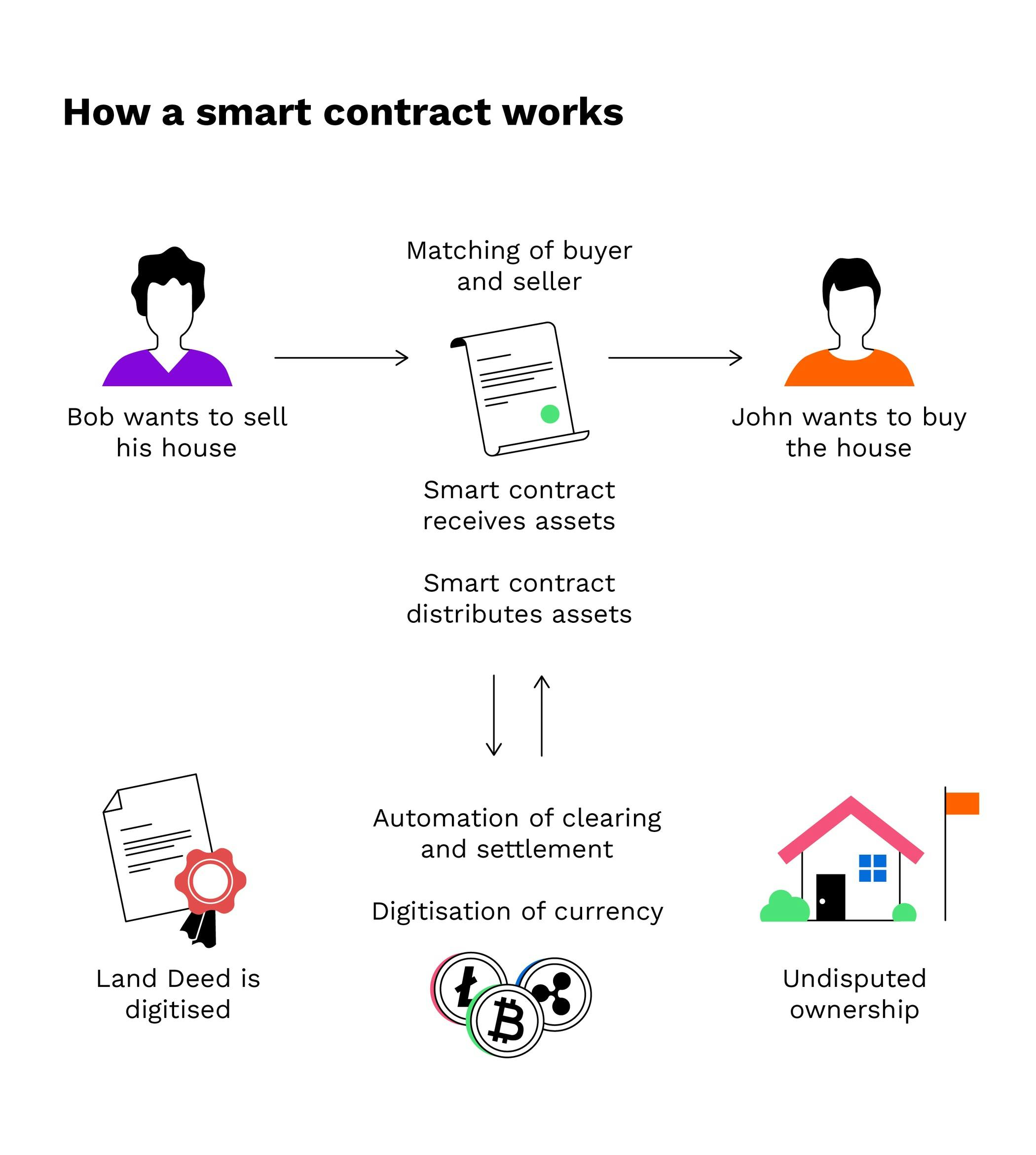I am well diverse in the things of law (only because I picked up a thing or two about it from my sister who is the actual lawyer, but who cares) but I'd like to think that surely you don't have to be a lawyer to understand what a contract is, but if by chance you do not, fear not I got you.
A contract is a written or spoken agreement, between two parties (indidviduals or businesses) especially one concerning employment, sales, or tenancy, that is enforceable by law. In much much much simpler terms, contracts are basically formal promises. I'm sure you make at least one contract every week if you think about it.
Smart contracts is what I'd like to explain and since I've already explained what a regular contract is (only because I like to be thorough and not show off my intelligence). I believe this article will make a lot of sense to you (only if you choose not to skim through).
What is a Smart Contract?
A smart contract is a self-executing computer program or a transaction protocol that is intended to automatically execute, control or document legally relevant events and actions according to the agreements of a contract. The objectives of smart contracts are;
The reduction of need for trusted intermediaries.
Arbitration and enforcement costs.
Fraud losses.
Reduction of malicious and accidental exceptions.
Basically smart contracts do not need lawyers or other third parties for execution unlike regular contracts where third parties are included to ensure that the contract is met according to the rules stated. Smart contracts make sure the conditions of the contract are met without human sentiments also unlike regular contracts.
Smart Contracts in Blockchain
Smart contracts are digital contracts stored on a blockchain that are automatically executed when predetermined terms and conditions are met. Smart contracts work by following simple "if/when...then " statements that are written into code on a blockchain. A network of computers executes the actions when predetermined conditions have been met and verified. The blockchain is updated when the transaction is completed, that means the transaction cannot be changed, and only parties who have been granted permission can see the results.
Smart contracts can be programmed by a developer although organizations that use blockchain for business provide templates, web interfaces, and other online tools to simplify developing smart contracts.
Ethereum remains the gold standard for smart contracts and blockchain based apps. There are thousands of dApps(Decentralized Applications) across blockchain networks, including finance, gaming,exchanges,and media. They can all utilize smart contracts in different ways and to different ends.
Examples of ways smart contract can be used include:
Financial purposes like trading, investing and borrowing.
They can be used for applications in gaming, healthcare, and real estate.
They can used even to configure entire corporate structures.
Smart contracts empower DAOs.
Benefits of Smart Contracts
Once the conditions of the contract are met, the contract is executed automatically.
There's no third parties involved and encrypted records of transactions are shared across participants only.
Blockchain transaction records are encrypted which makes them very hard to hack. Moreover each record is connected to the previous records on a distributed ledger, hackers would have to alter the entire chain to change a single record.
Smart contracts remove the need for intermediaries to handle transactions and by extension their associated time delays and fees.
I intended for this article to be as simple as short as possible and I hope it came across as exactly that for you, in case of questions feel free to ask in the comments section I'll try my best to answer to the best of my knowledge.


